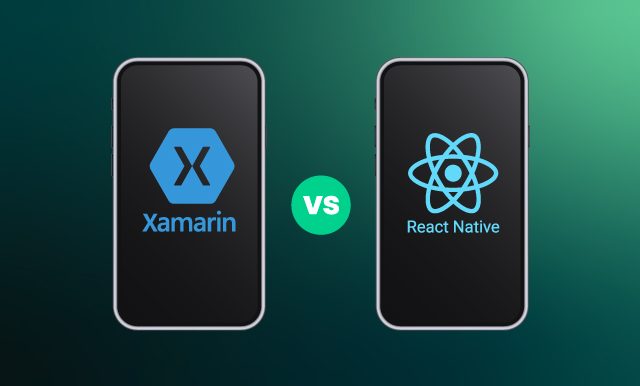Let’s start with a few facts about PHP and JavaScript (JS) in general. Both are scripting languages widely used by the global software development community. According to Statista:
- JavaScript is among the top skills for 65% of programmers.
- PHP is utilized by more than 25% of developers.
Why Should We Compare PHP vs. Node.js?
Although both can be used to create applications of any type and complexity level, they are differently architected and employ different programming concepts. Many developers break a lance over comparing Node.js with PHP and vice versa. Let’s contribute our study to resolving this dilemma. Please note that while comparing PHP with Node.js, we are focused on the main differences and may leave some minor ones aboard.
There was a good old time when these two programming languages didn’t compete but combined successfully: JavaScript was a technology exclusively used for front-end web development (user interfaces), while PHP was used to code back-end applications (the server-side realm).
In 2009, this situation changed once Node.js arrived on the market as a new back-end JavaScript-based coding technology. That’s why a PHP vs. Node.JS comparison is necessary. Let’s learn more about their features and pros & cons.
Node.js Features, Facts, Pros & Cons
Here are several significant facts about Node.js:
- It is an open-source runtime environment powered by JavaScript.
- It uses Chrome’s V8 JS engine that enables high-performing and stable applications.
- Node.js was designed for building custom network applications. It comes with native network-related modules including HTTP, DNS, file system, and more.
- It supports asynchronous I/O primitives backing the high responsiveness of JS apps.
- Node.js allows coders to build both front-end and back-end layers of applications and develop websites with the help of JavaScript language only.
- Node.js files contain only Javascript and come with a .js extension.
- Frameworks: most popular include Express (a web framework), Meteor, and Derby (the full-stack MVC frameworks.)
Node.js: Benefits and Best Capabilities
Shareability
The distributed application model allows Node.js developers to deliver well-tested and refined software products as fast as possible because they can share code execution and tests between the browser (client) and server components. This remarkable capability helps them to prepare and launch web applications to market in a shorter time, thanks to the increased personal productivity of developers.
Event-driven environment
Owing to this feature, developers can use Node.js to build web solutions with real-time functionalities and/or interactive user experiences, including intense data exchange like:
- Video streaming and processing;
- Instant messaging and video chats;
- Different types of online transactions, including payments, and more.
Swifter change implementation
Node.js features wonderful flexibility, which allows developers to make considerable changes in the code easily and fast. An event-driven concept and distributed application model help Node.js to maintain a suitable base for scalable and agile apps, which is a key advantage in the turbulent, fast-changing environment of modern business. Another important component is MongoDB, which also allows for the smooth adoption of a change in existing data structures. It provides a vital fundament for frequent application updates and improvements.
Scalability
Node.js is great for developing scalable server-side solutions. Thanks to Node.js cluster modules, there is no need to put excessive pressure on your RAM as the said functionality allows re-balancing workloads over a number of CPU cores. Moreover, Node.js features non-blocking event-loop architecture that allows the server component to execute requests in real time and make the best use of this efficient framework that helps consume computing resources wisely.
Node.js: What Are the Drawbacks?
How to compare Node.js with PHP? Let’s highlight some of their well-known disadvantages, starting with Node.js. Remember that we are going to mention only the most notable flaws, while there can be more negative nuances left aside for deeper research.
Poor capabilities for intensive calculations
Node.js appears less efficient than PHP when it comes to long-run, CPU-heavy, and resource-consuming computing operations. That’s because Node.js doesn’t feature multi-threaded programming capabilities. In other words, instead of inadequate utilization of computing capacity, which can lead to a potentially slowed-down performance, Node.js must be used for coding single-threaded systems.
Nested callbacks or so-called “callback hell”
Because of the asynchronous I/O core of JavaScript, Node.js massively depends on callbacks. It means that tasks are executed one by one. For example, accessing certain database elements, values, files, commands, etc. These tasks take some time to get done. Asynchronous means it is impossible to proceed to the next line or pause the process (program execution). The result should be stored in the memory and called back when completed. Node.js code structure appears similar to a pyramid with nested callbacks. Every callback keeps an argument (result) of the previous callbacks, making the whole code hard to read and operate. An error in one function also affects the rest.
Projects that Use Node.js
Despite the fact that Node.js is used by only about 2% of websites (against 80% that use PHP), the projects that have adopted Node.js for their needs include many huge and prominent businesses, such as:

Conclusion on Node.js
Node.js is the best choice for developing scalable server-side solutions. Thanks to the non-blocking I/O and an event-driven model, it can perfectly work for single-page applications that use real-time functionalities, like chats, social media, online portfolios, video streaming platforms, services with instinctive transactions, file-sharing services, etc.
PHP Features, Facts, Pros & Cons
PHP (an acronym for Hypertext Preprocessor) is one of the major open-source server-side scripting languages in the web application development industry.
- PHP was purposefully created for custom web development in 1994.
- Nowadays, it is reported that ~80% of websites use PHP to develop backend software components and server applications.
- PHP is mostly known as a server-side scripting language for web development, but it is used to build general-purpose applications, too.
- PHP script files have a .php extension, but a file can also contain sources of Javascript, HTML, CSS coding, and even plain text.
- PHP is a keystone programming language for several extremely popular open-source frameworks such as Laravel and Symfony.
PHP: The Benefits and Best Capabilities
When we speak about a Node.js vs. PHP comparison, it’s important to mention that PHP has made the long path from the very early days of web development technologies to nowadays and has been consistently evolving to keep its top positions in the industry (current PHP version is 8.0 and latter). Let’s consider the major advantages of PHP scripting language.
Advanced customization
PHP development is popular for its high levels of customizability. When your organization scales up, it becomes necessary to upgrade the capacity of your website, acquire new features and functionalities, or expand your web service’s infrastructure so it can handle more visitors, connections, transactions, and so on. With PHP, it’s easy to keep up with the business expansion and develop scalable web applications for many years in a row.
Cross-platform web development
PHP technology is smoothly compatible with many platforms, including Windows, Linux, macOS, and some less popular options. Besides that, PHP is a backend scripting language that can interact with a wide range of web servers, like Apache, iPlanet, or Netscape, and can also connect with a variety of SQL and NoSQL databases, including MongoDB and MySQL. This feature makes PHP the best choice for web developers who want to maintain a custom or variable configuration of web-based systems on their back end.
Simple & speedy script performance
PHP scripting language has the capability of quick data processing, which underlies a more swift page load time. This feature positively affects customer satisfaction rate as there is a smaller chance for visitors to leave because of prolonged waiting time. Moreover, coding in PHP is comparatively simple: you don’t need any fancy compilers or powerful converters to execute PHP programs. Instead, you can run PHP codes right from the notepad app (for example, you don’t need a virtual machine with Secure Shell access to run PHP codes). PHP easily connects to a database of your choice without hosting restrictions. In other words, PHP can be a great scripting language for writing projects quickly as well as making swift changes and updates in existing code lines.
A greater global talent pool
Since PHP is among the top popular languages in the world, more than 6 million PHP developers are available for hire and consulting. This is a considerable number that allows company managers to find the talents they exactly require and benefit from a shorter recruitment timespan than for other programming technologies and skills. Also, if you want to rebuild, upgrade, or transfer your existing PHP-based web project to another specialist or vendor, you won’t have much trouble with this process.
PHP: What Are the Drawbacks?
In the context of our Node.js vs. PHP comparison, we have to explain several disadvantages of PHP that can potentially be considered by web developers as reasons to opt for another technology, including Node.js or alternatives.
Costly full-stack development
Building a project with PHP requires having at least a skilled LAMP-stack engineer or a team of several developers, including skills in MySQL, JavaScript, PHP, CSS, HTML, and Linux. Unlike Node.js, you cannot accomplish both the front-end and back-end of a project with JavaScript but you will need several specialists in different languages and technologies.
Costly code testing and QA
One of PHP’s most serious drawbacks is its subpar error-handling functionality. PHP neither has sophisticated debugging features nor offers immediate bug-alerting notifications for programmers, which makes it more difficult to spot and eliminate bugs and errors in the code. That’s why PHP is considered more prone to errors than Node.js and requires more time for testing and quality assurance procedures. At the end of the day, applications written in PHP can contain a bigger number of errors.
Security concerns
Is PHP more vulnerable than Node.js? Besides the potential errors, there are a lot of native PHP vulnerabilities that are well-known to skilled developers, and there exist a number of hacker tricks used to exploit these loopholes in PHP codes. These hacking and maleficent techniques include various types of code injections, request forgery, session hijacking, and more. Node.js files and sources are considered to be more protected and secure than pure PHP. All of these potential loopholes can be covered by skilled and experienced PHP developers who are capable of deploying counter-hacker measures.
Projects that Use PHP
PHP-driven projects are massively represented throughout the entire Internet. As we mentioned before, PHP scripting language is used to fuel about 80% of websites belonging to completely different realms and types, which can be a general argument for how successful this technology is. The world-class companies and projects that rely on PHP include:

Conclusion on PHP
PHP is primarily used for building web applications and websites that are expected to put hefty workloads on CPU and server capacities, including complex mathematical visualizations and intense calculations, like web apps for a wide range of scientific, data aggregation, and technical purposes. Moreover, its high compatibility with different CMSs like WordPress, Drupal, and others, makes PHP a good option for creating and maintaining blogs, news portals, and other content-focused websites, including e-commerce websites.
PHP vs Node.js Final Comparison

Summary
If you find this general PHP vs. Node.js comparison insufficient for your needs, please contact our PHP and Node.js engineers for more personalized consulting in the context of your specific project. Building a project with either PHP or Node.js requires a seasoned engineer to stand by and plan/control the process, so that no considerable loopholes, bugs, or architecture failures can be made by inexperienced developers or freelance programmers.
If you have an existing project and want to redesign your backend using one of the considered technologies, then a precise comparison of PHP with Node js must be carried out by our professionals under individual conditions of your website, web application, or service. Contact us and we’ll gladly help you out!

Our Engineers
Can Help
Are you ready to discover all benefits of running a business in the digital era?

Our Engineers
Can Help
Are you ready to discover all benefits of running a business in the digital era?







